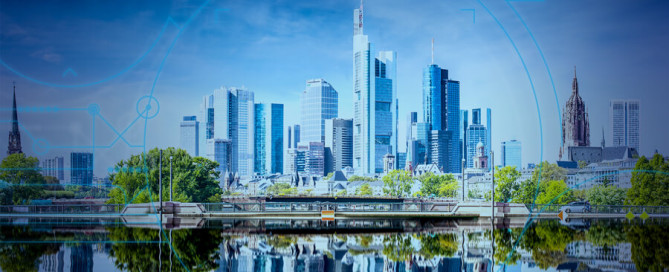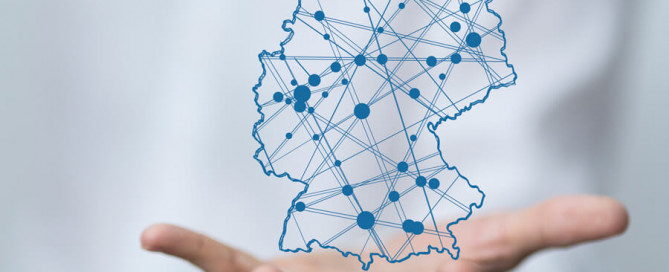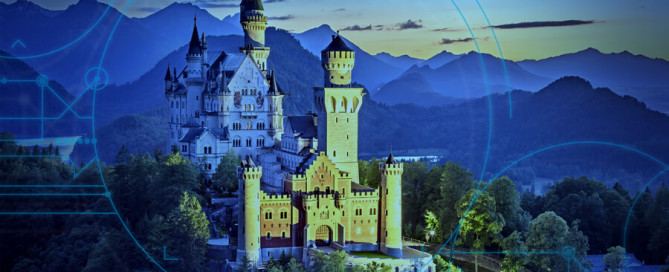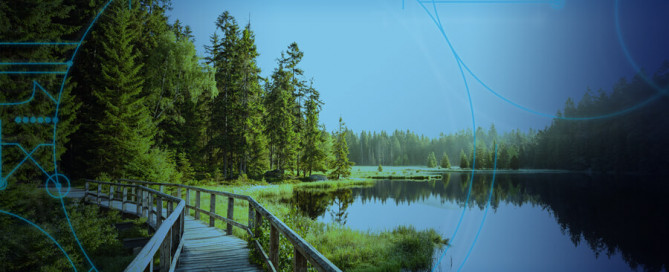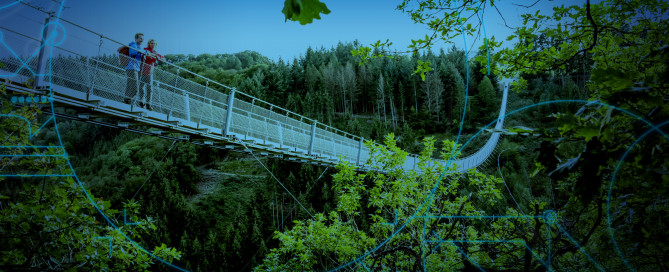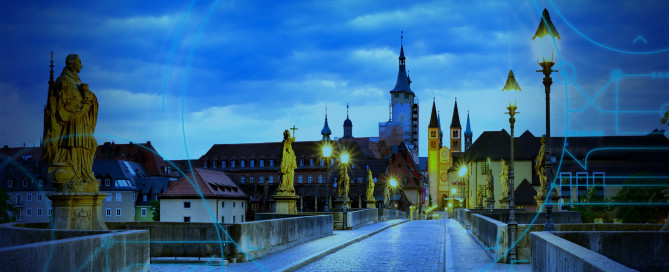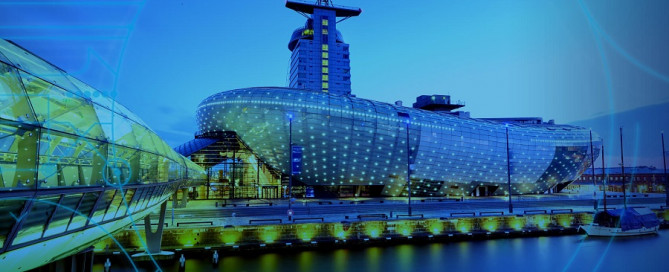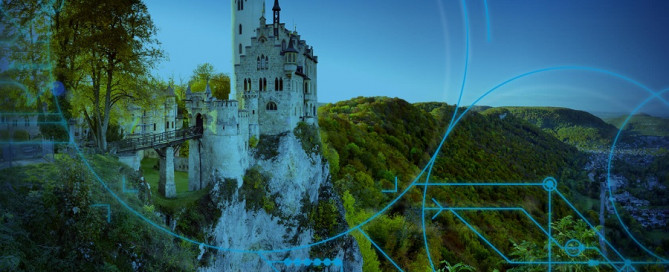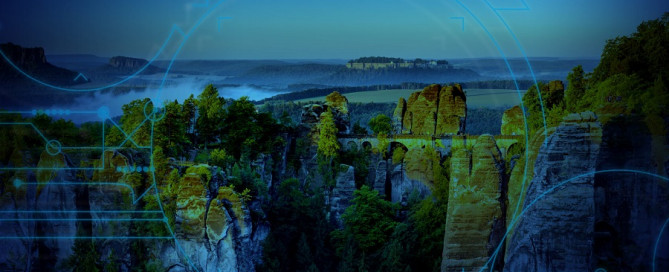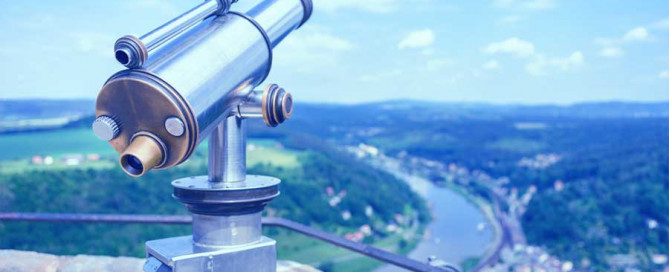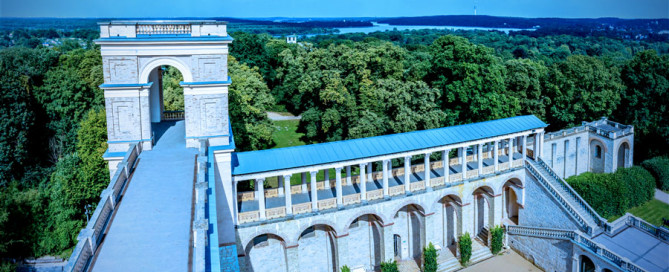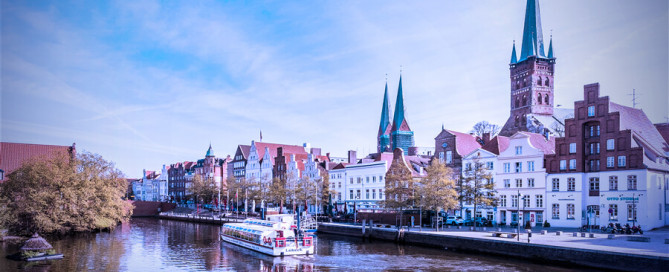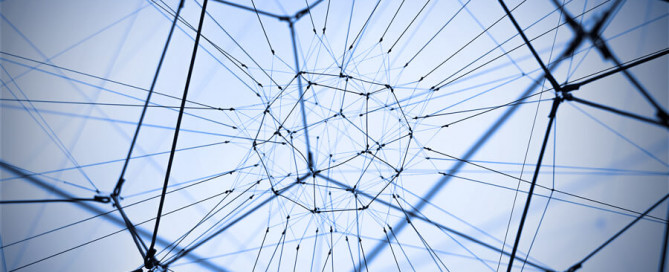Open data in tourism: innovation through AI and structured data
Structured data and AI are driving digital change in tourism. Projects such as the GNTB's Open Data/Knowledge Graph are creating tools such as "Emma", an AI-supported travel companion that provides personalized recommendations and inspires users. Open data: revolution in tourism Digitalization is changing tourism, especially through the use of artificial intelligence (AI). Travellers increasingly expect personalized recommendations and technologies that make their planning and experiences easier. AI-based travel planners and virtual assistants play a key role in this. Until now, the focus of many destinations has been on directing users to their websites. In future, [...]
Digital challenges in tourism
Digitalization is making travel planning more individual and authentic. Visitors are using digital channels and information sources more and more when planning their trip, but above all on site. And this is completely independent of their destination. The decision for or against a vacation destination is made quickly, usually with a click or a tap of the finger. In order to master these digital challenges in tourism in the coming years, the strength of a networked and united industry is urgently needed. Above all, the (open) data from tourism associations and companies will flow into new services and solutions. [...]
Intelligent language applications in tourism
How do intelligent speech applications work? Intelligent speech recognition and artificial intelligence (AI) offer a variety of opportunities in the tourism industry to improve customer service, enable personalized experiences, and increase operational efficiencies. The use of Open Data, i.e. freely accessible and open data sources that are available in the form of a Knowledge Graph, makes these technologies even more powerful and more extensively used. The speech applications are based on artificial intelligence and machine learning. They use this technology to understand, interpret, and respond to natural language. The basic steps of how these applications work include: Natural Language [...]
The future of data management for inbound tourism to Germany
I am happy to announce that the German tourism industry’s biggest ever data infrastructure project is now live! Today, in conjunction with all project participants, we finally brought the GNTB Knowledge Graph on stream. Over the past three years, we have put in a lot of hard work – and shown great agility and vision – in order to get this collaborative project up and running. At this point, I would like to thank my team and all the various partners, the 16 regional marketing organisations for the federal states, the Magic Cities marketing association, the travel technology company [...]
Access for data retrieval
Request access to data retrievalFrom now on, data users and interested parties can easily and conveniently request access to the application interface (API) for the Knowledge Graph.Three steps to data utilizationSend e-mail to open-data@germany.travel indicating company, e-mail address and name of contact personReceive email with access data (API key) for data retrievalInitialize API and retrieve dataSome partners are in the final stages of implementing their databases, connecting to the Knowledge Graph, or sharing data. They will provide their data shortly. In addition, further properties will be successively added to the individual data types and corresponding data will be made available [...]
Speak, not type
How conversational AI is changing communication in tourism In view of the shortage of skilled workers and digitization, the need for intelligent search functions and chatbot solutions is increasing. If the applications are based on well-structured and open data, conversational AI could transform communication in tourism. For many people, especially younger ones, the use of voice interfaces is now taken for granted - typing is increasingly perceived as a nuisance. Accordingly, access to tourism data and services in natural language has a high future potential for tourism applications supported by artificial intelligence (AI). It is expected that intelligent voice [...]
How the largest digital infrastructure project in tourism is taking shape
In 2022, the digital transformation in German tourism will reach a new dimension. With the opening of the Knowledge Graph for free data retrieval, the largest digital infrastructure project of the German tourism industry becomes reality. The progress of the overall project is impressive evidence of the tourism industry's strong shoulder to shoulder - especially in the Corona crisis years of 2020 and 2021. At the same time, the cross-company and cross-industry collection and semantic labeling of decentralized data inventories in a knowledge graph is considered an exemplary nationwide data infrastructure project in the German economy. In order to [...]
Shaping tourism with data diversity
The power of data "The world's most valuable resource is no longer oil, but data," wrote IT expert and founder of the data management company Igneous, Kiran Bhageshpur in an article for the Economist in 2017. In fact, just a few years ago, it was all about the sheer volume of data. The common perception is that those who collect a lot of data gain competitive advantages. This was countered by concerns, for example around the issue of data protection and the prejudice that data was only something "for the big companies". However, current technological developments have added a [...]
Viewpoints – AI Applications in Use at Regional Marketing Organisations
Artificial intelligence will bring rapid changes to tourism. The organisations that represent the regions and the individual destinations are beginning to lay the groundwork to ensure that this transition is a success. The first AI applications are already at work in the field. An overview. AI will open up new possibilities in many areas for society and business. And it will do so for tourism too. Machine learning and algorithms are already hinting at the possibilities, and while we like to write about these scenarios in the future tense, this is a future that [...]
Better linked, easier sell
The German travel market is fragmented which makes managing destination data, POIs and other experiences all the more important. Open data sets, the Destination Germany knowledge graph and the use of artificial intelligence will provide a clearer picture and form the basis for new applications and services. by Thomas Reintjes, freelance science and technology journalist "I want to go to Ibiza." could be the type of request handled by the system from AI experts Adigi. But according to Adigi’s founder, Nicolas Götz, very few people want to just travel to Ibiza; they want to go there to [...]
Digital Guest Information and Visitor Guidance in the Bay of Lübeck
The Bay of Lübeck Guide. Where can I find everything about my holiday region from a single source, ideally supplemented by real-time information? What can I experience and explore in my area? When are the next events taking place that suit me? In 2018, we set out with these common questions from locals and guests, to provide the high-quality service our tourist information offices offer - digitally and as simply as possible. In 2019, this has resulted in the "Bay of Lübeck Guide" - our digital holiday companion on site. The offer is oriented towards the needs [...]
Pandemic. Open Data engine.
A Capgemini report by order of the EU Commission shows: The open data maturity level of the 27 EU countries has increased by 10 percentage points in the wake of the pandemic. Germany enters the top ten for the first time. These weeks, the Open Data / Knowledge Graph project for German tourism reaches the next milestone. Following the audit on the status of available data and the technical design, the Knowledge Graph infrastructure is now in place and the upload of data is in full swing. By importing selected test data from federal state marketing organizations and [...]
Status Quo Open Data activities of the LTOs and Magic Cities
In addition to the activities of the Open Data Project Group, the LTOs and Magic Cities are also actively promoting the topic in their federal states and cities. The following article is intended to provide you with a brief overview of the current project status and further procedures. If you have any questions, please do not hesitate to contact the referring person. In Baden-Württemberg, the mein.toubiz database from the agency land in sicht is used as the central state system for recording and digitizing the tourism infrastructure. All data types relevant to tourism such as [...]
10 Tips for Open Data
We often hear the statement "I understand open data in theory, but how do I prepare my data to be open data now?" In order to explain the necessary steps in a comprehensible way, we would like to give you 10 practical tips. These are divided into the three main pillars of licenses, content and general. Licenses Review of the image and text inventory as well as contracts with photographers, authors and, if applicable, other content producers How were images and texts purchased? Which rights apply? Are they neatly documented? Is it possible [...]
Visitor Guidance and Open Data in Lower Saxony
The Corona pandemic has brought the issue of visitor guidance into focus. In tourist regions, hygiene and distance regulations must be met. This leads to reduced capacities in many places. Against the background of the discussion about overtourism and sustainability, active visitor management was already an important factor and will only rise in the future. Visitors need to be directed to areas that can still accommodate guests and also need to be informed in advance when capacity limits have been reached at a location. On the one hand, this allows tourist destinations to present themselves to the outside world [...]
Knowledge Graph and Artificial Intelligence
A Knowledge Graph as a modern form of data architecture. In the future, guests will increasingly search for information on the basis of natural language. Search requests based on natural language are dictated to the smartphone or requested in the form of questions to digital assistants such as Google Assistant or Alexa from Amazon. It should be noted that queries as well as the expected responses of natural language input are different from a classic search query. Complexity increases because requests are often made in a specific context and depend on weather, current location, personal preferences, etc. Thus, when [...]
Motivation for Data Management
Structured Data and SEO. Search engines are becoming answering machines. The representatives of regions and places as well as hosts are usually the ones who manage basic information such as addresses or opening hours. Therefore, it is necessary to motivate them to improve the quality of data in the field. Search engine optimization (SEO) can be a great help, because tourist destinations and hosts as well want easily to be found online by potential guests - and he perfect gateway for this are search engines such as Baidu, Bing, Google and Yandex. The ways to become visible on the [...]
Goals and Challenges of Data Management
The foundation of the digital destination. Data infrastructure is the foundation on which a digital destination can build. The quality of the data determines how digital applications can be used in conjunction with the digital equipment in the destination. An Infoscreen in a tourist information is only as good as the data quality offered to the guests. High data quality should therefore be seen as a reference for the digital maturity of the destination. The DMOs must therefore ensure that all tourism-relevant data, such as information on POIs, events, prices or opening times of excursion destinations, can reach the [...]
The Digital Destination
A digital infrastructure for guests. Destination management organisations (DMOs) have to adapt to the changing behaviour of guests. For a DMO, establishing a digital infrastructure is crucial for the future. However, this infrastructure has long since ceased to refer only to a modern website. Guests inform themselves about the holiday destination on various channels. They are also online at the holiday destination with their smartphone, tablet or laptop and book additional services directly there. Guests should therefore be picked up digitally where they are. Three key elements can be distinguished in the digital tourism infrastructure: Digital equipment, data infrastructure [...]
The Digitally Networked Guest
Guests are digitally connected - always and everywhere. The behavior of guests is changing in the course of advancing digitalization: they are increasingly informing themselves and booking digitally, both before and during their trip. The digital device serves not only as an information medium, but also as an all-in-one solution with which guests can access the destination. Guests decide to use an output channel depending on the situation, need and habit. In order for information to be displayed on different media, it must be prepared in a coherent manner. The data can then be used interoperably and can be [...]
Further Sources Regarding Data Management and Linked Open Data
The topic of data management and Linked Open Data has become increasingly relevant in tourism in recent years. Therefore, the following guidelines and publications were realized. 2021: Artificial Intelligence in Germany’s Inbound Tourism Industry Magazine Editor: Christian Leetz Abstract: The AI Magazine analyses the opportunities and challenges arising from one of the most prominent drivers of technology in the digital revolution in the tourism industry, artificial intelligence. https://open-data-germany.org/ai-magazine 2020: Open Data Manual in Germany's Tourism Industry Authors: Eric Horster, Elias Kärle, Florian Bauhuber, Kristine [...]
Open Data in Brandenburg
"Our goal: good data-based services for customers and tourism partners. In this context, open data will become increasingly important in the future." Tourismus-Marketing Brandenburg GmbH (TMB) received the 2018 German Tourism Award for its Brandenburg Content Network. Objective for this database: To make high-quality digital content available nationwide - and beyond. What is the current status here? Numbers, Data, Facts The Brandenburg content network consists of... about 350 regional partners who maintain the data at local and sub-regional level. approx. 14,000 integrated points of interest. more than 27,000 events published [...]
ThüCAT – The Concept of Digital Tourism
What if...? ...the exhausted hiker in search of a cool beer would no longer have to stand in front of closed doors, even though the website said 'open'? ...there was no answer such as "I don't know!" to the question "Alexa, where can I go dancing tonight in Erfurt?"? ...dynamic startups would have all the up-to-date, authentic and correct data of Thuringia's tourism, in order to develop innovative applications and offers without any obstacles? The employees of Thüringer Tourismus GmbH asked themselves these questions based on the state tourism strategy Thuringia 2025. "We were looking for a [...]
Tourism data management North Rhine-Westphalia – Open, Linked, Digital
Today's guests are digitally on the move. The smartphone and other mobile devices have become a constant companion for people. They communicate via social media, get their information on a wide variety of platforms and book their restaurant visit, museum tour and accommodation wherever they happen to be. This change in people's information and travel behaviour, along with the diversification of output channels and new developments in the areas of Big Data, the Internet of Things or Artificial Intelligence, is one of the major challenges facing the industry today. This is where the project "Tourist Data Management North Rhine-Westphalia [...]
Cosmopolitanism and Nonchalance in Lübeck
Lübeck und Travemünde Marketing GmbH developed a new strategy in 2017/18, which included a value discussion on brand identity that identified openness as an important component, among other things. Openness - the topic of Open Data. It comes as no surprise when Christian Martin Lukas, Managing Director of Lübeck and Travemünde Marketing GmbH, says: "I think Open Data is great. And period." Open Data and Lübeck - It Fits "Lübeck has always been a cosmopolitan city. That is part of our DNA. That's why Lübeck and Open Data fit together so well. Lübeck with [...]
Open Data and SEO – Is that possible?
As an SEO consultant, I was very skeptical at first: "Open Data and SEO? Can that work? Does it even make sense?" In the meantime, I have had the opportunity to find out more about the topic of Open Data and the concept as it is being implemented by the GNTB and the specialist group that has been formed. I'll go ahead to say today, "Yes, it can make sense, even from an SEO point of view"! In addition, the following article should also be seen only within the context of search engines. Ecosystems that are not analyzed by [...]
Open Data in Siegen-Wittgenstein
Siegen-Wittgenstein is a region that has been dealing with Open Data for a long time. What's beginning to show, time and again: It's not just about technology, it's very much about people. Openness, Trust and Courage Julia Hilpisch, responsible for content management and digital strategy at the Siegerland-Wittgenstein e.V. tourism association, is certain: "Seldomly, technology and money are the problem with Open Data." It is more about people, communication and emotions, because Open Data is currently strongly associated with fear. Fear of losing one's own data sovereignty or one's own areas of responsibility and position. What [...]
Does tourism need Open Data?
Views put to the test. Open Data as an attitude. The debate about Open Data is initially less about technical issues and more about negotiating mindsets. How "open" can, should or may data be provided? Basically, three levels can be differentiated here: Data can and should (also in the future) only be used for one's own needs. In particular, this includes personal data - this applies against the background of the Data Protection Regulation (DS-GVO) more than ever. However, data on which business models are based can also fall into this category. Particularly against the [...]
The Legal Implications of Open Data
and how DMOs can properly protect themselves. Introduction. An open content marketing platform aims to make the widest possible data pools available to participating DMOs without restriction. The generic term "open data" refers primarily to digital content such as texts, infographics, images and videos that can be used and modified by anyone without inquiry or permission. In German law, the copyright of the producers as well as the image and personality rights of the persons concerned must be taken into account. The following article is intended to show which rights are specifically affected in [...]
How do I Implement Open Data in My Organization?
Step by step to open data. Due to digitalization, the tasks of a DMO are changing. DMO once stood for Destination Marketing Organisation, but in recent years this has changed to Destination Management Organisation. If one looks at the now extensive importance of data for the work of a DMO, it becomes clear that the development is moving further towards a data management organisation. Accordingly, the DMO must accept the tasks associated with this topic for itself and create the necessary conditions for it. But how can Open Data be introduced in an organisation? The individual [...]
How Digitalisation Changes the Tasks of a DMO
And why "(Open) Data" is needed for this. A DMO is a tourist organisation operating in a specific area. Limits to the actions of a DMO originate on the one hand from administrative units, on the other hand from cooperations as well as the actions of the guest itself. A DMO can operate at federal state level (LTO = Landestourismusorganisation) as well as at regional level (regional DMO). The Influence of Digitalisation on the Tasks of a DMO The abbreviation DMO once stood for Destination Marketing Organisation. The DMO concentrated on [...]
Open Data in Thuringia
At Thüringer Tourismus GmbH (TTG), the topic of data has been all about ThüCAT, the Thuringian Content Architecture Tourism, since 2018. All tourism content is to be bundled centrally in one place with this database. The declared goal is for all this content to be available as open data. Selection of Contents For Detlef Klinge, Head of the Competence Center Tourism 4.0 of Thüringer Tourismus GmbH, it is clear: "An essential question already lies within the content audit: Which content is really needed?" Not all texts, photos and videos that have been produced or purchased by [...]
Linked Open Data and Artificial Intelligence
The perfect match? Artificial intelligence - what is that actually? The topic of Linked Open Data (LOD) is often mentioned in connection with the term Artificial Intelligence (AI). AI is to be understood as a generic term used to describe different automated computational methods such as Machine Learning (ML). It is true that machine readable data in the form of Linked Open Data and Machine Learning are directly related. The goal is to recognize patterns in data with machine assistance and to derive predictions on this basis. In the case of image [...]
Linked Data as a Mindset
Structuring tourism data for the semantic web. Data for humans...but not (yet) for machines. About 30 years ago, Tim Berners-Lee invented the World Wide Web (Web for short). In order to sort and link content of all kinds (text, images, audio, video files, etc.), he developed a system that identifies them by URLs. These URLs are still used today to link from one document to any number of others. This creates a network of documents or websites - the World Wide Web. Data can be stored and published in different forms. A [...]
Knowledge Graphs
A mirror of (tourist) reality. Data management today and tomorrow. In connection with Linked Open Data, the keyword Knowledge Graph is often mentioned. It is often not entirely clear what is meant by the term. A Knowledge Graph is, in short and generalized terms, a graph database that fulfills certain criteria (see infobox). The definition of a Knowledge Graph is not clearly defined. Nevertheless, characteristics can be described that are aimed at the word "knowledge". This allows us to specify more precisely how this knowledge can be extracted from a graph database, [...]
The Headless Web
Think data management modularly. The Evolution of the Web. The World Wide Web is undergoing a transformation process. The semantic web, also called Web 3.0, is currently developing, focusing on machine readability of data. The goal is for machines to independently establish meaningful connections. In this way, questions from users can be answered immediately. These developments are already changing the information behaviour of travellers. In the near future, data sets will not only have to be displayed by machines, but also understood and interpreted: Guests ask specific questions and the answers are adapted and send to the [...]





